American Hero; American Story
John Doar died last week at the age of 92. If there was a Greatest Generation, he was one of its greatest men.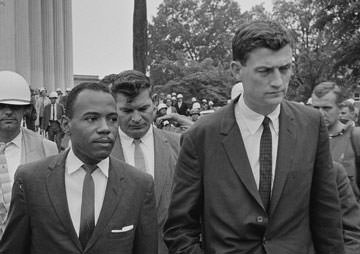 John Doar, right, escorts James Meredith to class at the University of Mississippi in 1962. Photo by Marion S. Trikosko, U.S. News & World Report, via Wikimedia Commons
John Doar, right, escorts James Meredith to class at the University of Mississippi in 1962. Photo by Marion S. Trikosko, U.S. News & World Report, via Wikimedia Commons
In the final months of any presidency, the men and women serving in the administration are ready to leave and move on with their lives. That was true of Harold Tyler, a New York lawyer who was the deputy attorney general for civil rights as the Eisenhower administration was winding down in 1960. But he had to find his own replacement, not an easy job because few lawyers were eager to leave their practices and lives to serve a few months in Washington.
Tyler had already been turned down by a dozen friends when he thought of a Princeton classmate named John Doar. They had played together on the school’s basketball team. So Tyler called Doar, who was practicing law in his hometown of New Richmond, Wisconsin, a town that still has only 8,000 residents.Doar immediately said yes! “I was bored out of my mind,” he told me years later. Well, in 1961, with John F. Kennedy, a Democrat, in the White House, Doar, a Republican, packed up his car with an uncle named John McNally and got ready to head back home. He went to say goodbye to the new attorney general, Robert Kennedy. They chatted a bit and Doar said his uncle was waiting downstairs. “Who’s your uncle?” asked Kennedy.“Well,” said Doar, “he’s best known as ‘Johnny Blood.'”“You’re kidding,” said Kennedy. “Johnny Blood was one of my brother’s heroes. He’s here?”Bob Kennedy called his brother, the president. “You won’t believe who’s here. Johnny Blood.”“Johnny Blood,” now in the Pro Football Hall of Fame, played most of a long career as a halfback with the Green Bay Packers, leading them to four league championships. He was also, as the official Packers history reports:© 2014 UNIVERSAL UCLICK
Your support matters…Independent journalism is under threat and overshadowed by heavily funded mainstream media.
You can help level the playing field. Become a member.
Your tax-deductible contribution keeps us digging beneath the headlines to give you thought-provoking, investigative reporting and analysis that unearths what's really happening- without compromise.
Give today to support our courageous, independent journalists.
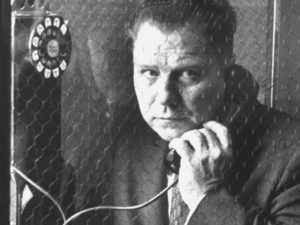
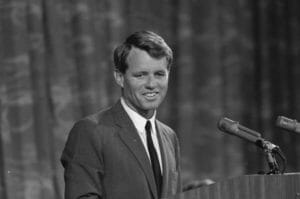
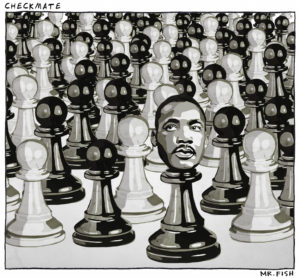
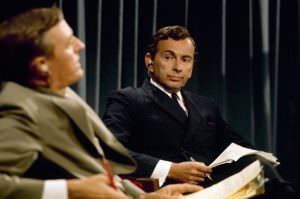
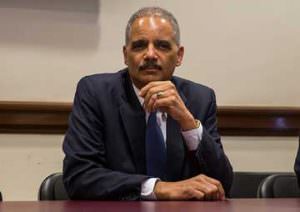



You need to be a supporter to comment.
There are currently no responses to this article.
Be the first to respond.